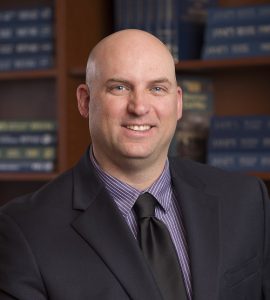By Leischen Stelter, editor of In Public Safety
Striving to understand the ideology behind terrorist organizations is not a new academic endeavor for American Military University’s Intelligence Studies faculty director, James Hess. He has spent the majority of his seven-year academic career and 21-year military career studying and researching the ideologies that influence terrorist groups like ISIS and Al Qaeda.
Now he has a new opportunity to dig deeper. In January, Hess was accepted as an International Relations Research Fellow with the University of Arizona’s Center for Middle Eastern Studies. Through this program, Hess is conducting in-depth research on the religious set of beliefs that drives ISIS and Al Qaeda and justifies their actions.
“Terrorist groups must have a solid ideology because that develops their strategy, tactics, logistics and how they gain financing through supporters,” said Hess. “Their ideology has to be something they can use as a recruiting tool and be powerful enough that others are willing to die for it.”
Researching Terrorist Ideology
Hess has been paired with renowned Islamic law scholar Dr. Scott Lucas to better understand Islamic law and its influence on terrorism. Every week, Hess meets with Dr. Lucas to discuss his findings and the direction of his work. “We had a long discussion about including other terrorist networks in this research, but I ultimately decided that I wanted to understand how ISIS and Al Qaeda use traditional Islamic jurisprudence—or don’t use it all—to form their terrorist ideologies,” he said.

Hess began his fellowship research with a historical approach to allow him to understand the foundation of Islamic jurisprudence. There are four traditional jurists, who derive the laws or jurisprudence, in Sunni Islam. Hess spent a considerable amount of time learning about those teachings and their influences on Islam. He focused largely on the teachings of influential scholars such as Abu Hanafi, Ahmad ibn Hanbal, ibn Taymiyyah, Muhammad ibn Abd al-Wahhab, Abul A’la Maududi, and Sayyid Qutb. Learning about these teachings can help him to understand how ISIS and Al Qaeda utilize or deviate from these doctrines. The traditional doctrines of Sunni Islam are derived from the Qur’an, Sunnah, Consensus, and Analogies. Islamic jurisprudence, which equates to Shari’a, is based on the traditional jurist that one follows. Hess’s research is analyzing how the deviation from traditional jurisprudence is influencing the ideology of ISIS and Al Qaeda, and ultimately how that justifies their actions.
One of the most prominent outcomes from his research thus far has been a greater understanding of how terrorist groups’ use of the concept of “jahiliyyah,” which means ignorance, as a foundational element of their religious ideologies. Hess recently wrote an article, “How Jahiliyyah Provides an Ideological Platform for Islamic Terrorists,” which provides detail about the origins of jahiliyyah and how it’s been manipulated by terrorist organizations to denounce the civil and religious leaders of modern Islam. Manipulating religious concepts, like jahiliyyah, away from its traditional meaning has helped ISIS and Al Qaeda develop their own ideology and distance themselves from traditional Islamic beliefs.
Hess was recently notified that the University of Arizona wants him to continue this research and granted him the fellowship for a second semester. At the end of his year-long research, he hopes to start writing a book based on his findings. The book, he says, will be an academic work, not a political or strategy-oriented piece. “I want it to be academically and properly researched in an effort to understand the ideology of Al Qaeda and ISIS,” he said. After the book is published, Hess says he intends to write additional papers that address some of the counterterrorism applications of his research. Ultimately, he hopes that his research can be used to help national decision makers develop counterterrorism tactics to fight these terrorist groups.

Comments are closed.